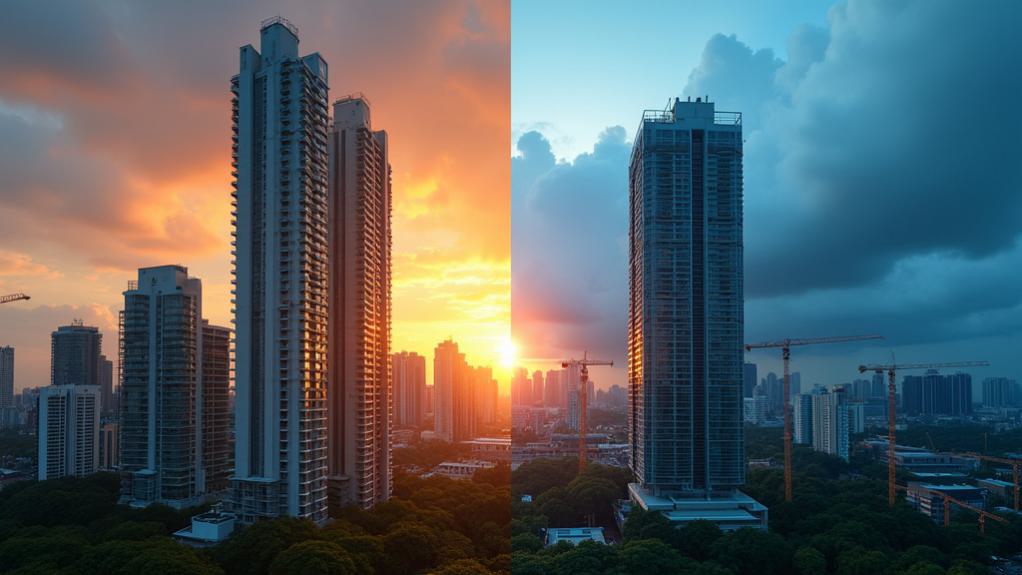How will Singapore’s latest regulatory intervention reshape the property investment landscape?
The government’s decision to increase Seller’s Stamp Duty rates by four percentage points and extend the minimum holding period from three to four years, effective July 2025, has generated varied responses across the real estate sector as stakeholders assess the implications for speculative activity and genuine homebuyers.
The policy intervention, jointly announced by Singapore’s Ministry of Finance, MAS, and Ministry of National Development, directly targets the surge in speculative flipping and sub-sale activity that has characterized recent market conditions.
Sub-sales experienced a dramatic 69% increase from 2023 to 2024, with transactions rising from 178 units in 2020 to 1,306 units in 2024, now representing 6.6% of non-landed home sales. Under the revised framework, sellers face penalties of up to 16% for sales within one year and 4% for fourth-year transactions.
Sub-sales surged 69% year-over-year, prompting regulatory penalties reaching 16% for first-year property flips under Singapore’s revised framework.
Industry analysts characterize the measure as a targeted “shock” that primarily affects speculative players rather than the broader market.
The significant price gaps between new launch and completed home prices, combined with investors’ utilization of the Progressive Payment Scheme, created compelling incentives for short-term speculation that prompted regulatory intervention.
Short-term investors now confront substantial cost hurdles that reduce incentives for early exits, with many expected to hold and lease units until the SSD period lapses.
This behavioral shift should dampen speculative buying demand and reduce transaction volumes in the short-term resale segment, while pandemic-era buyers who benefited from quick capital gains face extended holding horizons.
Genuine homebuyers experience minimal disruption, as most typically hold properties beyond the SSD period, while the policy provides assurance by discouraging unstable market swings.
The intervention concentrates on private, non-landed residential sectors, leaving HDB owners unaffected due to existing Minimum Occupation Periods. For those considering sales, payment required within 14 days of sale to the Inland Revenue Authority of Singapore ensures swift compliance with tax obligations.
Properties purchased before July 4, 2025, maintain greater exit flexibility until 2028. The timing of these measures is particularly strategic given that many projects are expected to reach completion from 2H2025 onward, potentially preventing a rush of speculative exits.
Overall property market prices remain relatively stable, as speculators constitute a small minority of total transactions, allowing the targeted approach to address speculation without disrupting everyday buyers and upgraders throughout the broader real estate ecosystem. The Outside Central Region has emerged as a particular focus area due to more attractive pricing and payment schemes that have made it a hotspot for short-term speculation.





